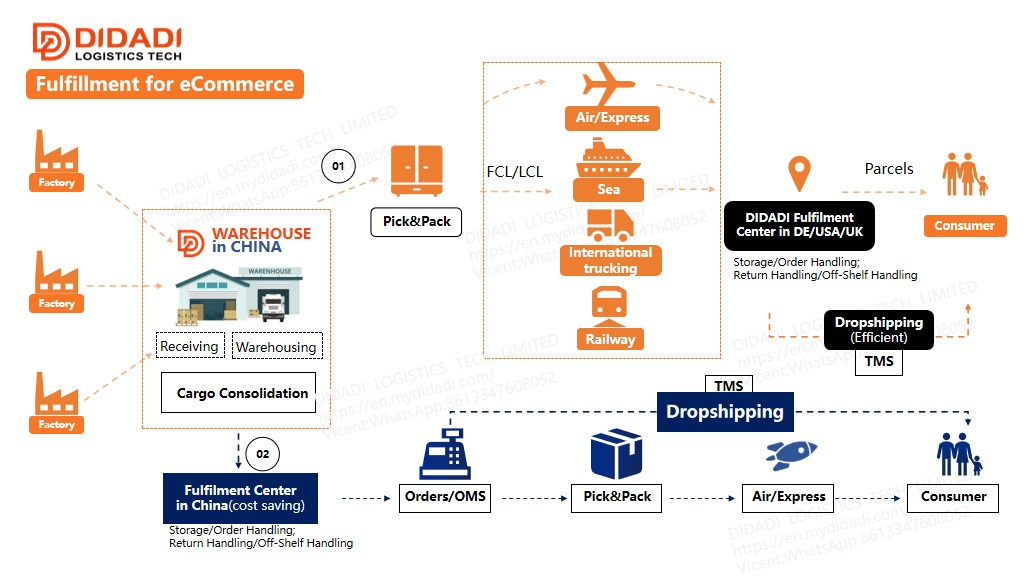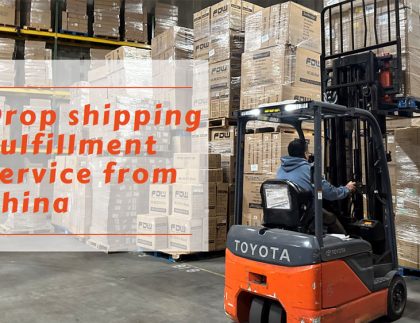3PL Inventory Management: Every Online Business Needs to Know
Effective inventory management provided by 3pl ensures that businesses have the right products in the right quantities at the right time, optimizing operational efficiency and customer satisfaction.

Inventory management is a critical aspect of running a successful business, regardless of its size or industry. It refers to the process of overseeing and controlling a company’s inventory, from procurement to storage, tracking, and order fulfillment.
Approximately 83% of online shoppers expect real-time visibility into product availability. And businesses with effective inventory managing achieve a 96% stock accuracy rate and an 8% increase in gross margin.
In this article, we will delve into the significance of inventory management, the situations that call for an inventory management system, and how to find the best strategy for your e-commerce inventory managing.
Table of Contents
What Is Inventory Management?
Inventory management encompasses all activities related to the acquisition, storage, tracking, and fulfillment of a company’s products.
It involves maintaining accurate records of inventory levels, forecasting demand, and making informed decisions to ensure an optimal balance between supply and demand.
Inventory management systems often leverage technology, such as barcode scanning, RFID (Radio-Frequency Identification), and software, to streamline and automate these processes.
Why Is Why Is Inventory Management Important?
Effective inventory management plays a crucial role in the success of any business. Here are several reasons why it is essential:
Meeting Customer Demand
One of the primary reasons inventory managing is important is to meet customer demand. By having the right products available when customers need them, businesses can enhance customer satisfaction and loyalty.
Managing inventory effectively ensures that end-to-end e-commerce have sufficient stock levels to fulfill customer orders promptly, avoiding stockouts or backorders.
It enables businesses to provide reliable and efficient customer service, which is essential for building a strong customer base and gaining a competitive edge.
Cost Efficiency
Inventory represents a significant investment for any business. Effective inventory managing allows companies to strike the right balance between having enough stock to meet customer demand and avoiding excessive inventory carrying costs.
By accurately forecasting demand, optimizing order quantities, and reducing carrying costs such as storage, insurance, and obsolescence, businesses can minimize their stock holding costs.
This helps in maximizing profitability by avoiding overstocking and reducing the risk of deadstock or inventory shrinkage.
Streamlining Supply Chain Operations
Inventory management is closely tied to supply chain management. It ensures the smooth flow of goods from suppliers to manufacturers, distributors, and ultimately to customers.
By implementing efficient inventory management practices, businesses like Direct-to-consumer (DTC) brands can reduce lead times, minimize order processing delays, and improve overall supply chain efficiency. This results in cost savings, increased operational agility, and better responsiveness to market fluctuations.
Optimizing Production and Manufacturing Processes
For businesses involved in production or manufacturing, inventory management is essential for optimizing these processes.
By accurately tracking raw materials and work-in-progress inventory levels, companies can ensure they have the necessary inputs to maintain production schedules.
Effective inventory management helps prevent production delays caused by material shortages or stockouts, leading to improved production efficiency and on-time delivery of finished goods.
Demand Forecasting and Inventory Planning
Inventory management involves analyzing historical sales data, market trends, and customer demand patterns to forecast future demand accurately. This allows businesses to plan their inventory levels accordingly, reducing the risk of excess inventory or stockouts.
By aligning inventory levels with expected demand, companies can make informed purchasing decisions, minimize holding costs, and optimize working capital.
When Do I Need An Inventory Manage System?

Implementing an inventory management system becomes necessary in various situations, including:
Rapid Growth
As businesses expand, their inventory management requirements become more complex. An inventory management system can help handle increased demand, multiple locations, and a larger product portfolio efficiently.
DIDADI operates warehouses across the world. With DIDADI, you have the flexibility to distribute your inventory across multiple fulfillment centers strategically, ensuring efficient order processing based on your customers’ locations.
Seasonal Demand Requires an Inventory Management
Businesses that experience seasonal fluctuations in demand require an inventory management system to forecast demand accurately, plan production and procurement, and optimize inventory levels during peak seasons and off-peak seasons.
Multiple Sales Channels
Companies that sell through multiple channels, such as brick-and-mortar stores, e-commerce platforms, and wholesale distribution, need an inventory management system to synchronize inventory across channels, prevent overselling, and maintain accurate stock levels.
Costly Stockouts or Overstocks
Experiencing frequent stockouts leads to lost sales and dissatisfied customers, while overstocks tie up capital and increase storage costs. An inventory management system helps prevent these issues by providing real-time visibility into stock levels and enabling proactive replenishment.
Turn to a 3PL For Warehousing And Inventory Management
Outsourcing warehousing and inventory management to a third-party logistics provider (3PL) offers several advantages for businesses. Here’s why you should consider it:
Expertise and Scalability
3PLs specialize in logistics and supply chain management:
- The expertise to efficiently handle warehousing by using warehouse management system(WMS).
- The resources to deal with inventory management and distribution operations.
- Scale their services as your business grows.
- Ensuring you have the necessary infrastructure and capabilities to meet increasing demand.
DIDAD has a best-in-class warehouse management system,e-commerce business can leverage DIDADI’s fulfillment services in any of our fulfillment centers across US, UK and EU to improve cross-border shipping, decrease expenses, and accelerate deliveries.
As a 3PL, DIDADI provides end-to-end fulfillment outsourcing, with our own WMS software, you can manage your inventory, orders, and shipments with ease, and know what’s going on in our warehouses where your products are stored at all time.

Cost Savings
By leveraging the economies of scale and operational efficiencies, 3PLs can often provide warehousing and inventory management services at a lower cost compared to in-house operations.
This eliminates the need for investing in additional facilities, technology, and personnel, reducing overall expenses.
Focus on Core Competencies
Outsourcing non-core activities like warehousing and inventory management allows businesses to focus on their core competencies, such as product development, marketing, and customer service. This promotes overall business growth and enhances competitiveness.
Enhanced Flexibility and Adaptability
3PLs offer flexibility in managing inventory fluctuations, allowing businesses to scale up or down as needed. They can also adapt to changing market conditions, such as entering new markets or launching new products, ensuring smooth logistics operations.
How to Find The Best 3PL For Your Business
Experience and Expertise
Look for 3PLs with a proven track record in handling inventory management and logistics for businesses in your industry. Their expertise in managing similar products, distribution channels, and industry-specific challenges will be invaluable.
Technology and Systems
Assess the technology and systems the 3PL utilizes for inventory management. Ensure they have robust inventory tracking and reporting capabilities, as well as integration options with your existing systems, such as your e-commerce platform or ERP (Enterprise Resource Planning) software.
Scalability and Flexibility
Evaluate the 3PL’s ability to scale operations and accommodate your business’s future growth. Consider their network of facilities, geographical reach, and ability to handle peak season demands or unexpected surges in orders.
Service Level Agreements (SLAs) and Metrics
Clearly define the performance metrics and service level agreements with the 3PL. This includes parameters such as order accuracy, on-time delivery, inventory accuracy, and responsiveness to inquiries or issues.
Reach out to DIDADI Logistics Tech today and entrust us with our expertise to make it work for you.
Previous Post: Carrier vs. Freight Forwarder: Choosing the Right Fit for Your International Business
Start your ship now!
- Improve your cross-border shipping
- Decrease expenses
- Accelerate deliveries









